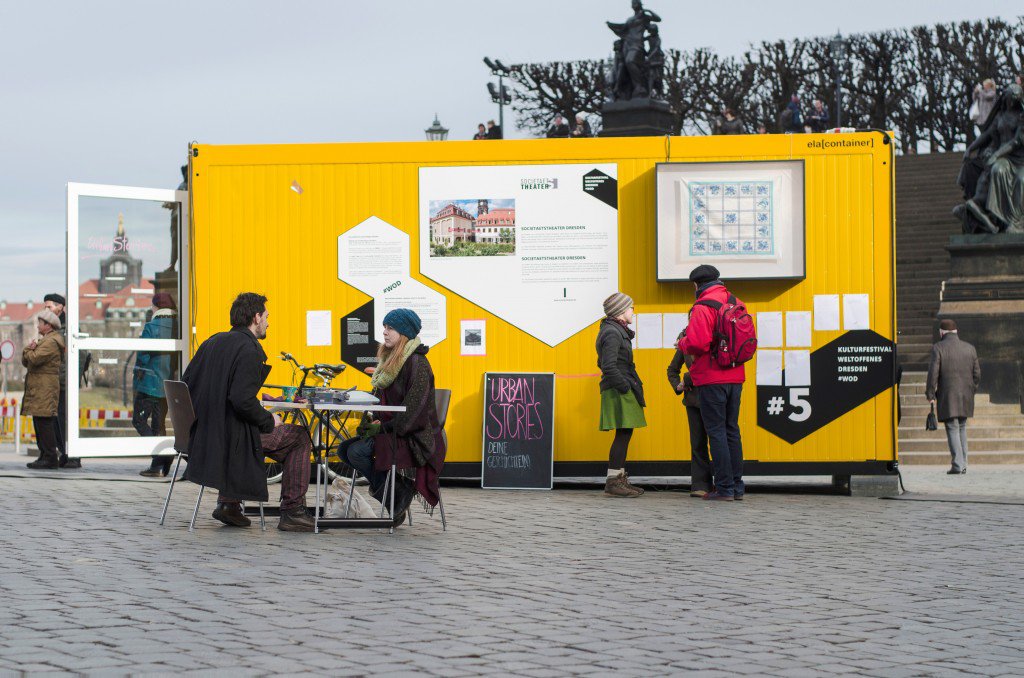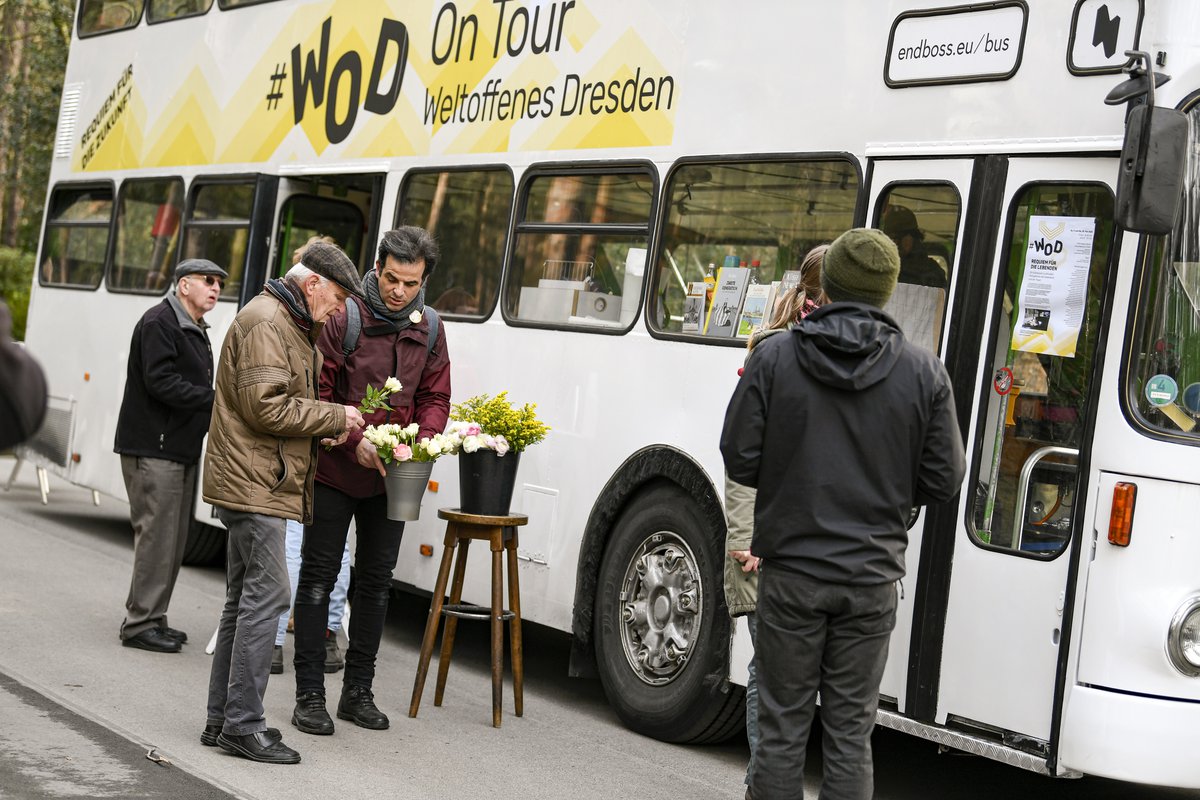Archive of Action

Since the association was founded in November 2014, #WOD WELTOFFENES DRESDEN has initiated over 300 events and joint campaigns to set standards for an open society, for tolerance and solidarity and against scare tactics and populism.
In February 2015, a cultural festival in 12 containers was the first joint project to take place in the public urban space of Dresden. Together with the people of Dresden and artistic protagonists from the local, national and international art and culture scene, the cultural and scientific institutions celebrated the direct cultural and human dialogue on the street - a sign of the future of this city. For ten days, different actors shared a rich program of exhibitions, concerts, readings and language lessons with a total of 6 containers - on Schlossplatz, Postplatz and on the terrace at Brühlscher Garten.
In February 2018, this form of literally taking to the streets in joint event was resumed: Again, on the occasion of the commemoration of the destruction of the war in Dresden in February 1945, under the title "Remembering & Forgetting", cultural institutions invited into the public space for ten days: Six yellow containers were to be found on Theaterplatz, Postplatz, Altmarkt and Neumarkt - "public places in Dresden that historically have often been the scene of destruction and other forms of hostility", so it said in the jointly published program. The aim of the diverse program of events was to experience these important places in the city as places of enriching dialogue and thus "to reflect freedom, identities and human approaches in the past and present".
After a summer with various events in the urban space, the joint setting of symbols on the occasion of the Dresden commemoration in February found a new form under the title "Remembering & Forgetting": # WOD ON TOUR was born, a new joint and mobile exhibition format in a bus that was on the road for a week with different cultural event formats and a mobile library in different parts of Dresden. Again it was the common concern, on the occasion of the annual commemoration of the war destruction of Dresden in 1945, together with the people of Dresden city society, the relationship between memory and history as well as the possible instrumentalization of memory and culture in relation, but also own, personal, possibly positive To reflect on life experiences and to experience the city as a place of coexistence and dialogue.
On Saturday, August 24, 2019, cultural workers from Dresden joined numerous initiatives, individuals, associations, cultural workers and artists from all over Germany for a free and open society. #WOD - Weltoffenes Dresden invited people to their own block of cultural topics as part of the rally, together with representatives from educational work and science as well as from various institutions and networks in the fields of art, theater, museums, music and the independent scene. On the rolling stage of #WOD - Initiative weltoffenes Dresden, the following could be seen and heard: Bernadette La Hengst, a Vogueing intervention, contributions by members of the ensemble of the Staatsschauspiel Dresden as well as speeches by a. Mayor of Culture Annekatrin Klepsch on behalf of Mayor Hilbert, Carena Schlewitt (HELLERAU European Center for the Arts) and Johann Casimir Eule (Semperoper).
With a traveling exhibition, themed city tours and a diverse program of special events, #WOD - WELTOFFENES DRESDEN joined forces again in February 2020 on the streets and in different parts of the city. The “Requiem for the Future” commemorative bus was a mobile project on current perspectives on commemoration and mourning in Europe on the occasion of the 75th anniversary of the bombing of Dresden and the end of the war in 1945 the war destruction of Dresden from 1945 to the present day and the influences it was subject to. These perspectives were documented by a media station hosted by the foundation Memorare Pacem e. V. as well as the video series "How history is made" by Dresden students. From the perspective of contemporary witnesses and future generations, the film "Come Together" (2012) reflects the development of events and experiences related to the commemoration of the 13th February - an emotionally charged network of political forces before and after 1989. A series of video interviews with victims of the NSU terror under the title "Spot The Silence" reflected the reappraisal and questions of commemorating racist violence after 1989 in Germany. The short film contribution "Unter der The image area "of the Dresden Film Festival, on the other hand, reflected the portability of the memory and reality of the NSU murders as well as the NPD and conspiracy theories.

- Faltblatt gemeinsames Programm WOD On TOUR / Requiem für die Zukunft, Februar 2020
- Faltblatt gemeinsames Programm WOD On TOUR Februar 2019
- Faltblatt gemeinsames Programm "Erinnern & Vergessen" Container im Stadtraum, Februar 2018
- Programm des gemeinsamen Kulturfestivals "Weltoffenes Dresden" in Containern, Februar 2015